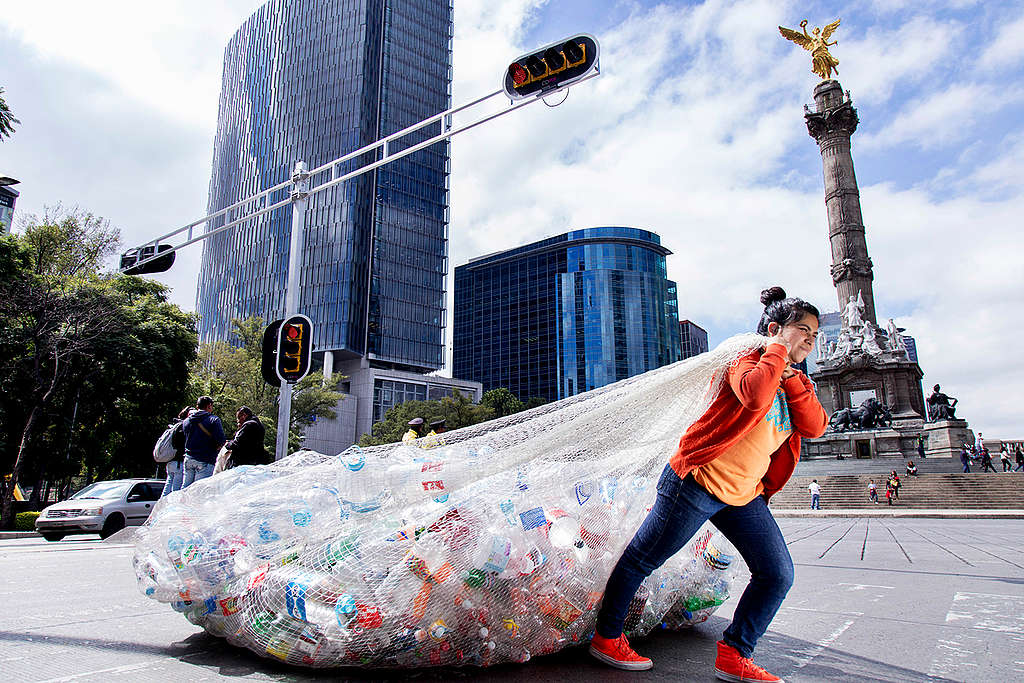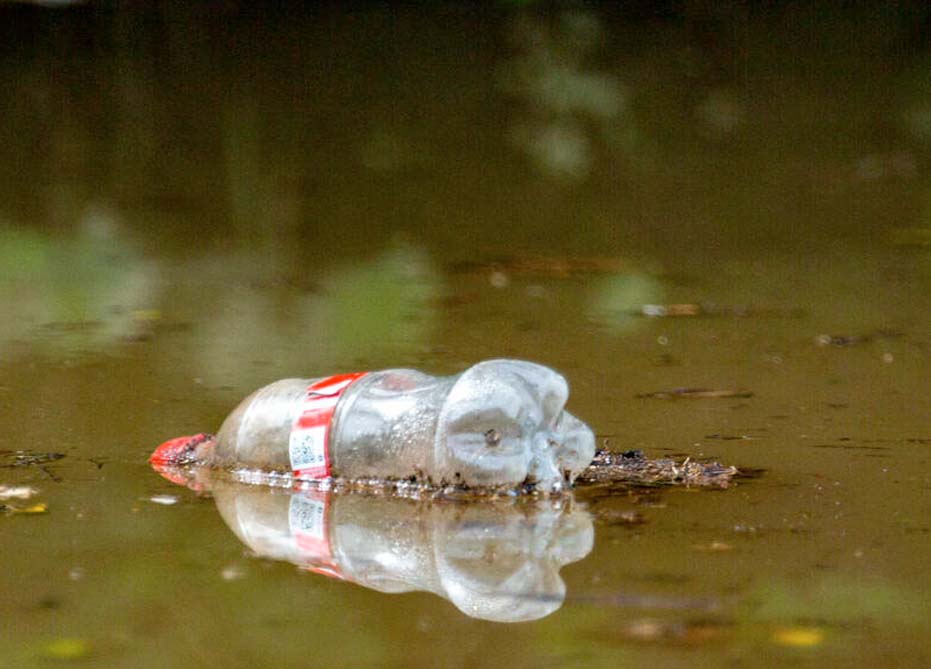Today is global recycling day, but as most of you probably know already, recycling is a bit of a sham.
Years ago when I found out that only 9% of plastic is recycled globally it was like a punch to the gut. I had grown up being a pretty keen recycler, always hated seeing litter and made an effort to pick it up and dispose of it in the right bin. So finding out that the vast majority of it wasn’t recycled at all, was demoralising. I actually felt kind of stupid for believing in it, and angry that I had been deceived. For decades, companies like Coca-Cola have been assuring us that as long as we ‘act responsibly’, making 100 billion single-use plastic bottles each year, is totally fine. And ultimately, when recycling failed, the blame has been turned around on us, the consumers.
I still recycle when I have no other option but plastic, not because I am optimistic but because I have stubbornly tried to trust that this would prevent that thing from ending up where it shouldn’t. But each time I do, that feeling of satisfaction at ‘doing the right thing’ is now replaced with a frustrating and sad reminder of the state of our so-called ‘waste management’ system.
Recycling or just greenwash?
The more you read into it, the worse it gets, and a recent episode of ‘Fair Go’ is just another illustration of what a shambles it is. Even with that expectation, I was still shocked to find out from their latest episode that councils admitted that 100% of public recycling in Auckland, Matamata-Piako, South Waiarapa, Hastings and Buller is dumped. And many other councils say at least 80% is heading to landfill. That means when you put your bottle, coffee cup, can or whatever in those yellow bins in town that say ‘recycling’ on them, well it’s going to the same place as if you put it in the red one next to it. If that’s not the definition of Greenwash I don’t know what is.

More than half the plastic products out there are unrecyclable, people are confused about which ones go where, and councils seemingly can’t bear the cost it takes to sort. It begs the question, why do we persist with this flawed system? Moreover, who does it benefit? Some may say consumers do from the convenience of a single-use throwaway system. But I wouldn’t call having plastic in our air, water, and food convenient. Big companies who make and sell it do, yet they pay no cost.
There are better options than Recycling
One pragmatic solution that experts interviewed on the show agreed would be progress was a national Container Return Scheme. Ironically, the same day this Fair Go episode aired, our Prime Minister announced that he would defer the proposed CRS – due to come in 2025 – to a later yet undetermined date.
A beverage Container Return Scheme is a popular policy that could lift collection of beverage containers from about 45% up to 95%. In a consumer survey conducted in September 2022, 78% of respondents supported the scheme. In the announcement, the cost of living crisis and potential cost to families was the reason given for the deferral. But we know that companies creating plastic pollution aren’t paying a cent toward the cost while privatising all the profits. Meanwhile we are paying for the destruction they’re causing through our rates and rent and the impacts to our human health, the degradation of nature and the climate crisis that plastic is fueling. The CRS would redistribute recycling costs more reasonably to producers and consumers. It’s a missed opportunity.
So do we just keep sweeping our rubbish under the proverbial carpet while the plastic tap continues to gush, unabated? When will our government get serious about dealing with the waste management issue and the plastic pollution crisis?
Recycling Day or not, we know recycling isn’t going to solve the plastic crisis, and it never will. Our decision makers must understand the focus has to be on reducing production. Banning products like single-use plastic bottles just as we did with the plastic bag, and creating refill and reuse systems, protects our biodiversity, the climate and people’s health. It gets to the root cause of the problem and it doesn’t even take any new technology to be invented.
Recycling has always been a narrative bandied about by the oil industry and the plastic packaging companies to keep extracting fossil fuels because they know recycling doesn’t prevent the need for virgin plastic and oil.
If we take plastics out of the equation, what will we get? Less waste, less pollution, healthy oceans, better future.
How can we get to this magical plastic-free future where we can put caps on plastic production and shift to alternative systems like refill, reuse and repair? How can we tackle a plastics crisis when it is a global problem? World governments have a once-in-a-generation opportunity to work together and negotiate an instrument that will end plastic pollution. We need our government to champion the strongest and most ambitious Global Plastics Treaty.
Sign the petition now to help rid the world of plastic!

Call on the NZ Government to stand firm and support a strong global plastics treaty.
Take Action


